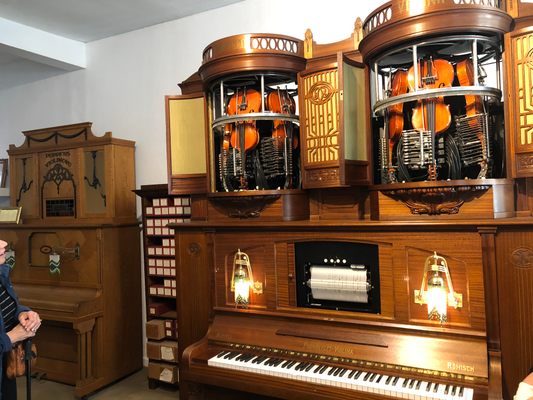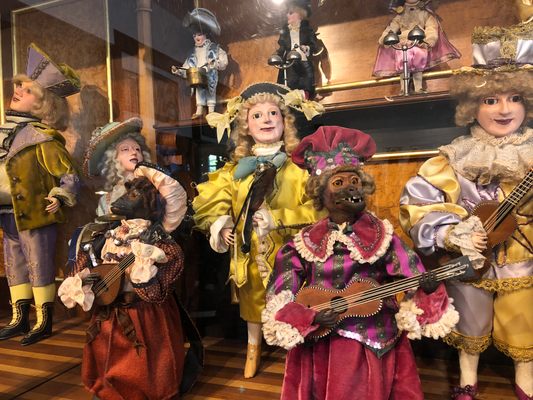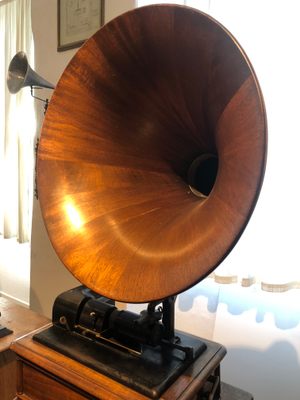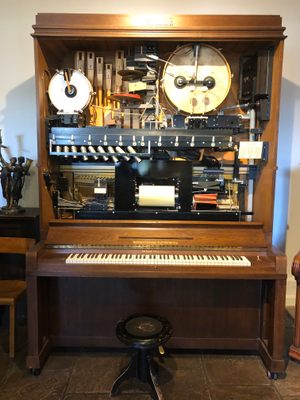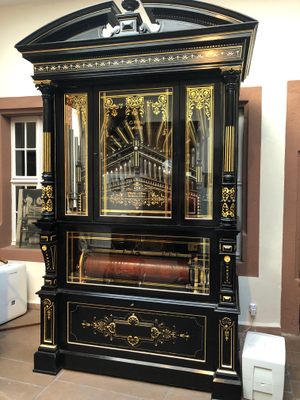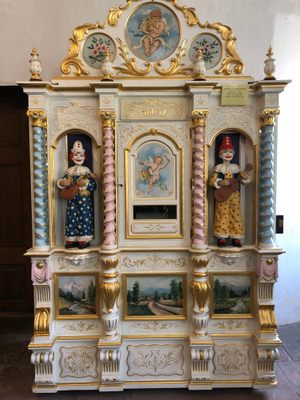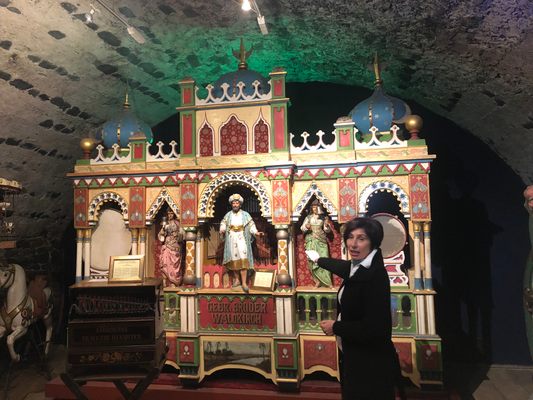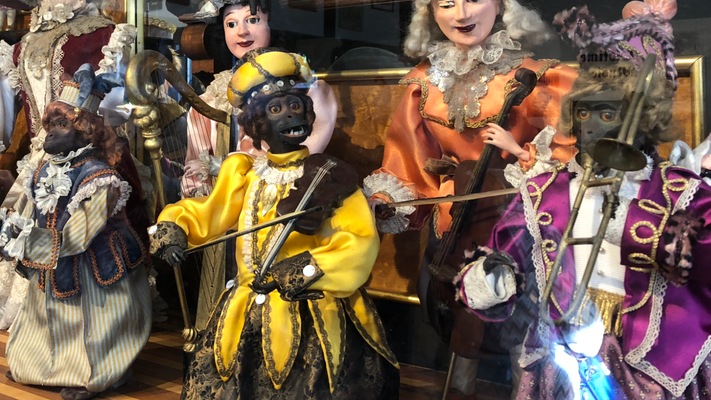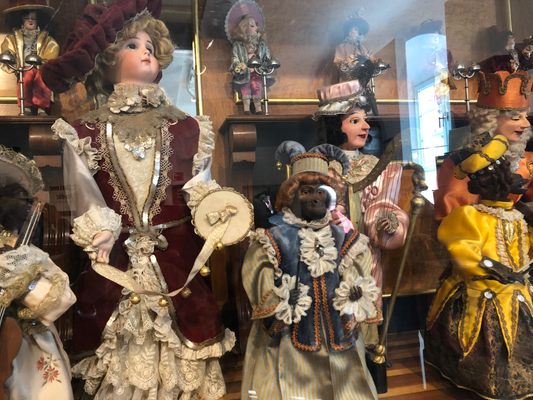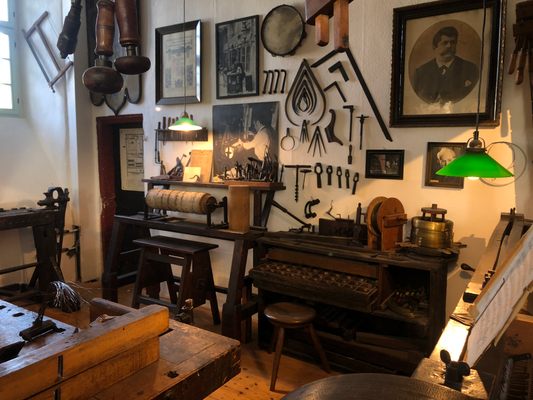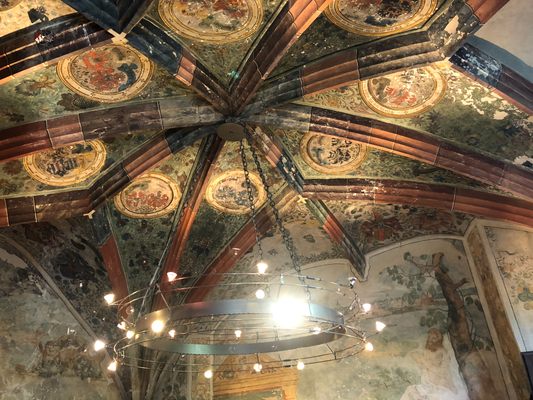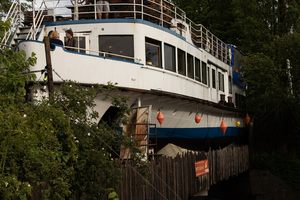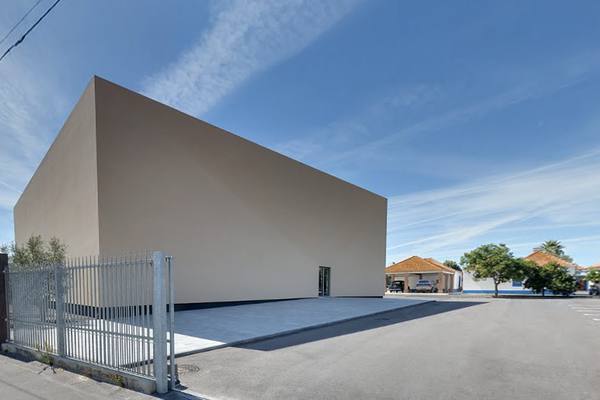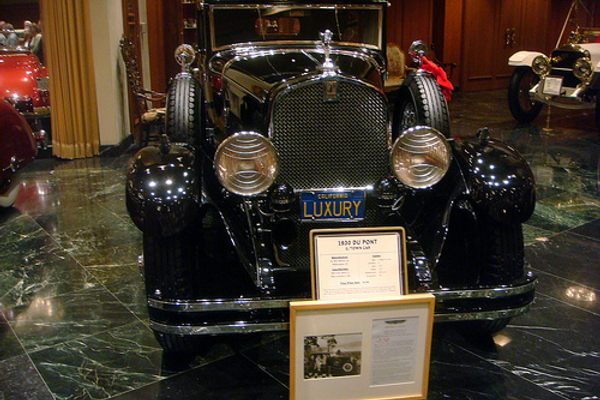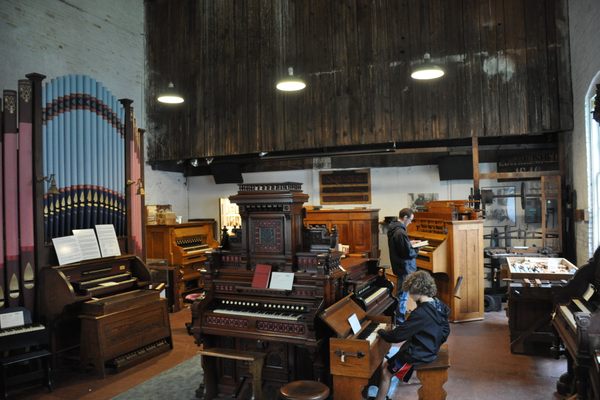About
It started with clocks. It was the 1960s and the German collector Siegfried Wendel had amassed a collection of well over 100 grandfather and wall clocks. Then one fateful day, a young couple in a beat-up Volkswagen appeared on Wendel's doorstep to see if he might just be interested in what they had in their backseat. It wasn’t a timepiece, but a gorgeous walnut-veneered, wood inlaid Polyphon.
Wendel was smitten, and a love affair (or obsession, some might say) with mechanical musical instruments was born. Wendel bid auf wiedersehen to his clocks and began amassing automated and mechanical musical instruments, most of which were in varying states of disrepair and required months of work to restore.
Eventually, it became clear a museum was needed to share this magical collection with the public. In 1969, Wendel opened his German Museum for Automatic Musical Instruments in the wine-growing town Hoccheim, near his hometown of Gustavsburg. It was relocated to Rüdesheim am Rhein in 1974. Wendel wanted to remove the word "museum" from the title, believing it had “dry and boring” connotations, so he rechristened the place Siegfried’s Mechanical Music Salon.
Wendel was invited to bring his musical instruments to Chancellor Helmut Schmidt’s Garden Party the same year, and to participate in the International Tourism Fair in Berlin. He and the Salon were quickly becoming known around the country and it wasn’t long before another town came courting and invited him to move his museum there. Rüdesheim got wind of this and was not about to let Wendel decamp with his wonderful instruments, so it offered him the stunning medieval Brömserhof building, where his collection—again rechristened, this time as Siegfried’s Mechanical Music Cabinet—resides to this day.
And wow, what a collection it is. Wendel collected an astounding array of contraptions, from orchestrions the size of a Mercedes Sprinter van to a snuff box with a singing bird that can fit in the palm of your hand. There are hand-cranked harmonipans; a musical chair that's activated when sat upon; a player grand piano; a pistol with a singing automaton bird; gramophones; orchestrions that play xylophones, mandolins, bells, bass, and snare drums; and the absolutely astounding 1909 Hupfeld Violina Phonoliszt, which features not only a player piano but player violins.
One highlight is the gigantic orchestrion with automata, titled “Musical Celebration In the Land of Dolls.” Lavishly attired monkeys play lutes, violas, violins, and trombones, while a ballet dancer whirls on point, a stage actress powders her face, and a multitude of royally attired musicians and singers add to the cacophony. It is all at once mildly creepy (the monkeys!) and totally enchanting. You can’t help but be utterly riveted.
As a bonus, two rooms in Bromserhof with vaulted ceilings covered in gorgeous paintings from the mid-1500s are still preserved, as is Wendel's workshop where he spent many an hour repairing and restoring his beloved collection of instruments. So vast is his collection that he once surmised, “I may not see them restored within my lifetime.” Sadly, Wendel passed away in October of 2016 and proved to be prescient on this matter. Happily for us all, his family is committed to continuing his legacy.
Related Tags
Know Before You Go
The only way to visit is by guided tour (the charming guides provide fascinating insight, and will also operate the instruments for you). It is advisable to book online in advance.
Community Contributors
Added By
Published
October 16, 2018
